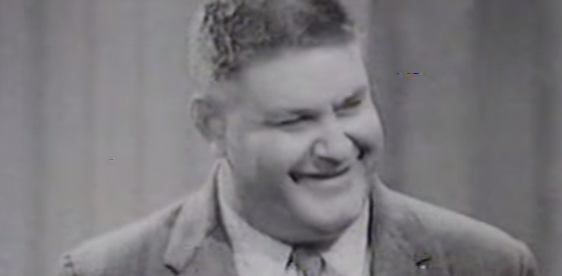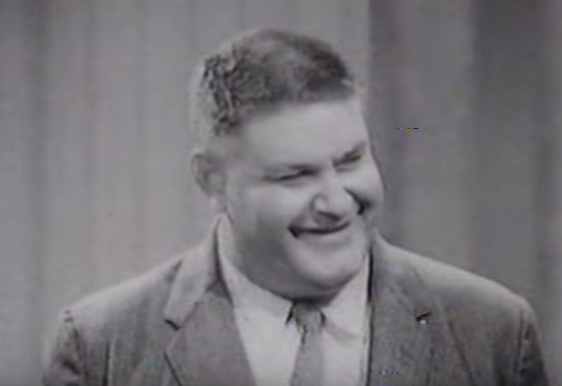The Doctor is In, We Think


The HMCS Cayuga was a Canadian naval destroyer active during the Korean War, serving three tours of duty. At one point during the war, it played host to about a dozen South Korean injured guerrillas. These fighters were brought onboard the ship for emergency medical treatment — accounts vary from “bullet removal” to “leg amputation,” but in any event, the lives of some these Koreans were in the hands of the ship’s young surgeon, Dr. Joseph Cyr. Cyr, during his few months on the ship, had already performed a handful of surgeries on his fellow crew mates and had similarly treated infectious diseases, but the immediacy of the needs of the Koreans seemed significantly more difficult. Nevertheless, Dr. Cyr was successful — he was able to save the lives of all the Koreans who required emergency treatment.
While the work of a lone surgeon on a random ship in the Korea Strait or Sea of Japan would typically go unnoticed, for some reason, Cyr’s exploits made the Canadian news. It’s probably not fair to say that Joseph Cyr became a household name in Canada, but his fifteen minutes of fame were significant enough that his mother, noticed the heroism of her son the doctor.
There was only one problem: her son was living in Grand Falls, New Brunswick, at the time, and was nowhere near the HMCS Cayuga. Whoever saved the lives of those South Koreans wasn’t Dr. Joseph Cyr.
In fact, he wasn’t even a doctor.
The man known to the others on his ship as Dr. Joseph Cyr was Ferdinand Waldo Demara, Jr., or “Fred” to those who knew him by his real name. Demara, pictured above from a 1959 episode of “You Bet Your LIfe” (watch it here) was a teenage runaway who grew up to be whatever he wanted — but only by pretending to be other people. At age sixteen, he left home and joined a monastery, living there for several years until he enlisted with the U.S. Army in 1941. By 1942, though, his time in the Army was over — he deserted. Perhaps concerned that using his real name would lead to his arrest for going AWOL, Demara adopted the name Anthony Ignolia, borrowing it from someone he met during his time in the Army. He bounced around for a few years, using various other names and trying out a few different occupations. After a while, the FBI caught him and charged him with desertion, for which (per Wikipedia) Demara spent a year and half in prison.
When he was released, though, he returned to his identity thieving ways. Per TIME, over the course of his adulthood, Demara “worked as a civil engineer, a zoology graduate, a doctor of applied psychology, a monk on two separate occasions (Trappist and Benedictine), an assistant warden at a Texas prison, philosophy dean at a Pennsylvania college, a hospital orderly, a lawyer and a teacher — among other professions.” (He’s even credited with founding a small college in Ohio.) His scheming earned him the nickname the “Great Imposter,” but nothing quite measured up to his impersonation of Dr. Cyr.
How Demara ended up convincing the Navy that he was a doctor is, sadly, lost to history. But you can use your imagination — Demara was a master at fooling people into believing he was someone else, and by all accounts, he was a very intelligent person with an excellent memory. These traits also helped him play doctor despite the fact that he never came close to attending medical school. As a Canadian Naval and Military Museum recounted, Demara’s early medical successes aboard the Cayuga were because he “apparently studied up on the necessary techniques by reading text books and [by] relying on the help of his Sick Berth Attendant, plus generous supplies of anesthetic and antibiotics.” And when the South Koreans arrived, Demara was a quick study, again per Wikipedia: “After ordering personnel to transport these variously injured patients into the ship’s operating room and prep them for surgery, Demara disappeared to his room with a textbook on general surgery and proceeded to speed-read the various surgeries he was now forced to perform, including major chest surgery.”
The rest of the Cayuga learned of Demara’s fraud shortly thereafter but they didn’t seem to mind — despite his lack of credentials, Demara/Cyr had been a pretty good doctor. Similarly, the Canadian Navy decided not to press charges and decades later, his crew mates still saw him as a “life-saver” per the New York Times.
It’s unclear when Demara played his last role — by most accounts, he had gone straight by the 1960s. He passed away in 1982.
Bonus Fact: M*A*S*H, the television show, was ostensibly about doctors during the Korean War (although like Demara, they were really only prentending). The show ran for 11 years. The Korean War only lasted three.
From the Archives: The Man Who Walked Out of Prison a Few Times: Another fake doctor story. In part, at least.
Take the Quiz: Name the countries that fought in the Korean War.
Related: “The Great Imposter,” a 1961 movie starting Tony Curtis as Demara.
